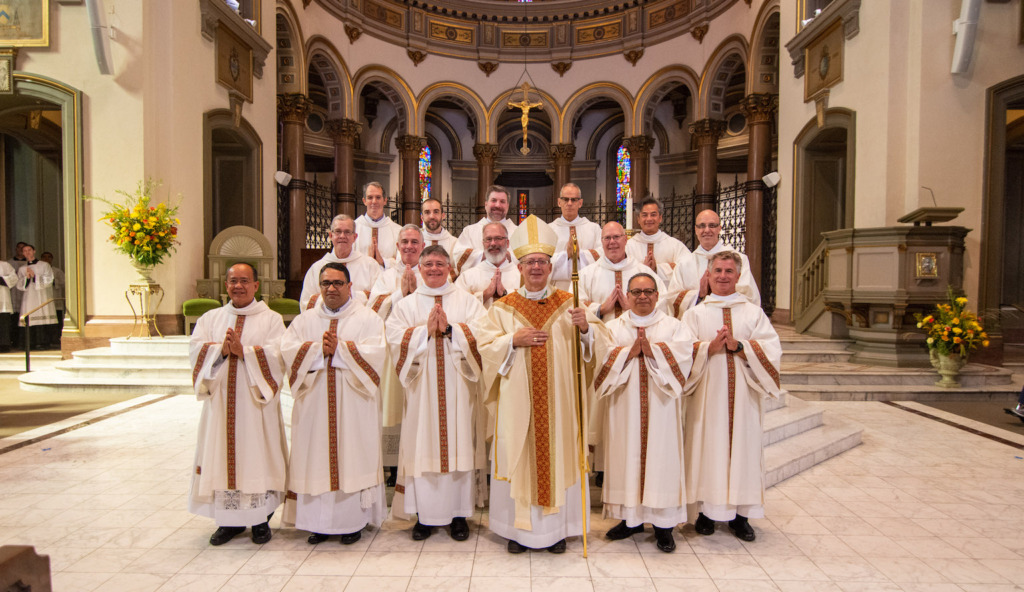One of the influences on my vocation to the priesthood was my dad, who was a permanent deacon in the Archdiocese of Washington, and who headed the archdiocese’s Office for the Permanent Diaconate. Dad’s diaconal service, particularly his ministry to the disabled, the sick and abandoned, was exemplary witness to the Gospel for my family and me.
I was reminded of that several weeks ago when I spoke to our diocese’s permanent deacons at their annual convocation. Our deacons make a unique contribution to our parishes. While priests are reassigned, our deacons provide a stable, spiritual presence in our parishes. They are vital to the continuity that is essential to the life of the Catholic community.
Combined with their daily lives being rooted in our local parishes, deacons’ gifts, often cultivated in their careers, professions and family life, provide a unique experiential perspective as they assist in pastoral care and oversight for a parish community. They are a constant amid the faithful.
In preparing to ordain 15 permanent deacons on Sept. 25, I met with the men and their wives. Again, recalling the extent of Dad’s diaconal ministry, I saw how important Mom’s support of it was.
When a married man seeks to study for the diaconate, his wife must agree to that commitment. While the deacon’s attention to and support of his marriage and family come before his service to the Church, there are times when his ministerial responsibilities require him to sacrifice time with his family.
What impressed me about our newly-ordained deacons and their wives is their devotion to the Church, their deep faith in God and their readiness to serve wherever the Church directs. Their spiritual bonds and commitment to their parish communities were strong.
The “National Directory for the Formation, Ministry, and Life of Permanent Deacons in the United States” states, “A deacon and his wife, both as a spiritual man and woman and as a couple, have much to share with the bishop and his priests about the Sacrament of Matrimony. A diaconal family also brings a unique presence and understanding of the domestic family.”
That “presence and understanding” is not only important for the bishop and priests to see, but it is also an example to the community in which they serve, especially to young couples who are or who will be learning to balance the demands of marriage, parenting, careers and engagement in Church life.
Next year, another cohort of men will begin their formation for the diaconate. Unlike those who have gone before them, their formation program will be different. Saint Meinrad Seminary and School of Theology will provide what we believe will be a comprehensive academic and pastoral experience. In addition, there will be more emphasis on spiritual formation, and an increase in the number of retreats candidates will make and pastoral projects they will undertake as part of their formation for the diaconate.
Sometimes people might not understand the role of the permanent deacon. In 2017, in response to a question from a permanent deacon in Milan regarding his role, Pope Francis replied, “We must be careful not to see deacons as half priests, half laypeople … The diaconate is a specific vocation that requires service.”
Our Holy Father continued with what might be considered a deacon’s job description:
“You are the guardians of service in the Church: service to the Word, service to the Altar, service to the poor. And your mission, the mission of the deacon, and your contribution consist in this: in reminding us all that faith, in its various expressions – community liturgy, personal prayer, the various forms of charity – and in its various states of life – lay, clerical, family – possesses an essential dimension of service. Service to God and to brothers. And how far we have to go in this sense! You are the guardians of service in the Church.”
Let us thank God for who these “guardians of service” are and for the gifts they bring to our local Church.

